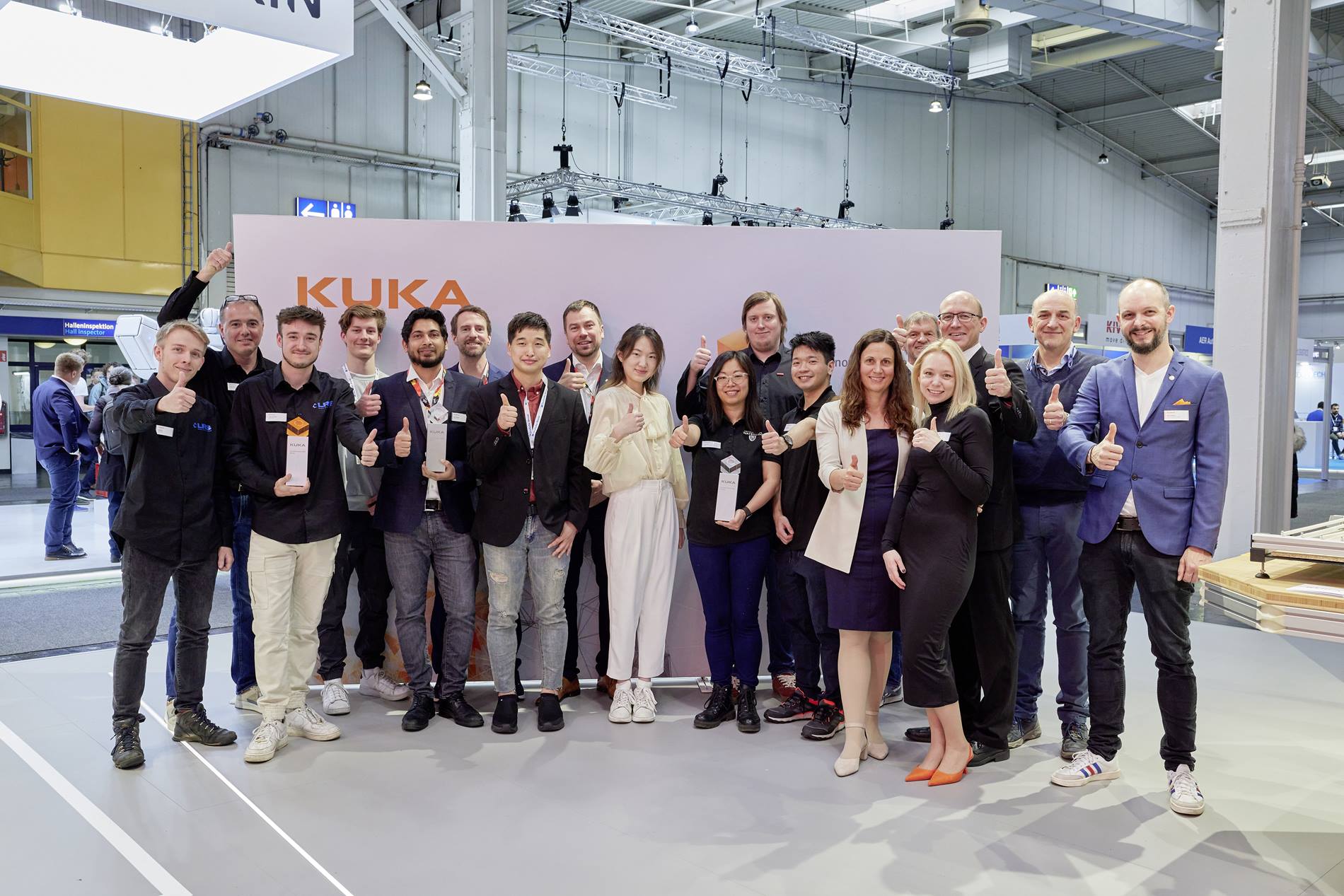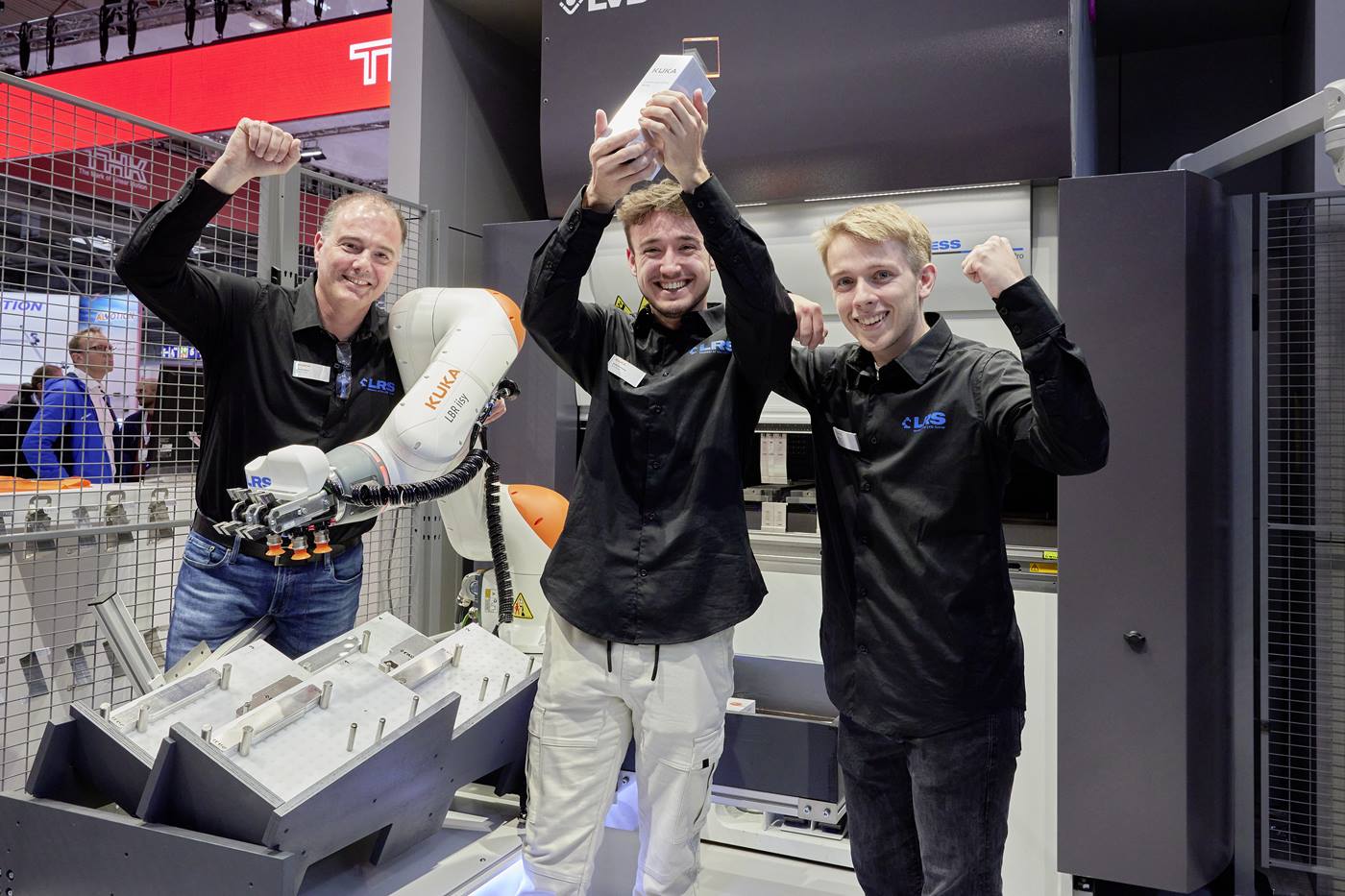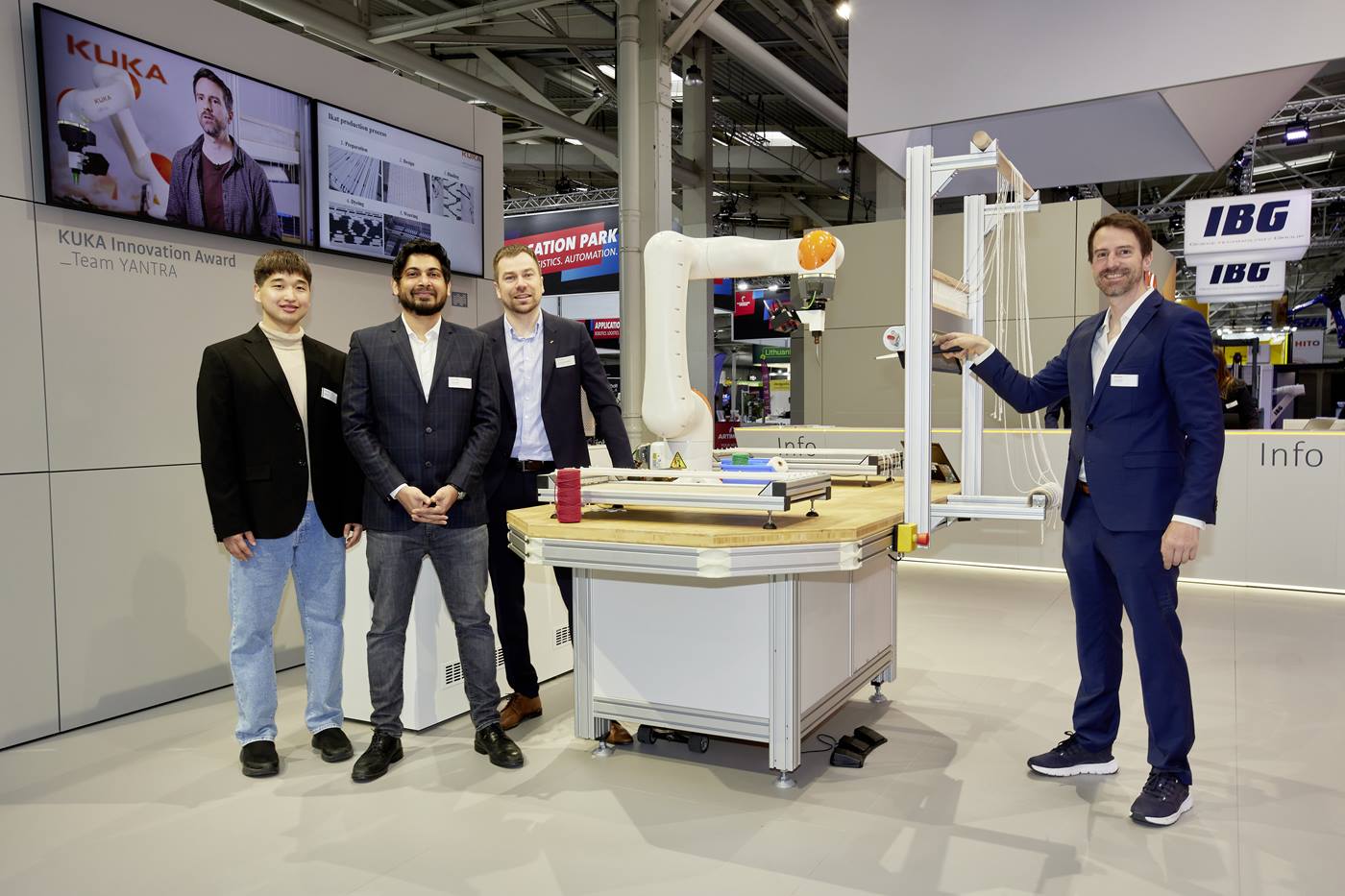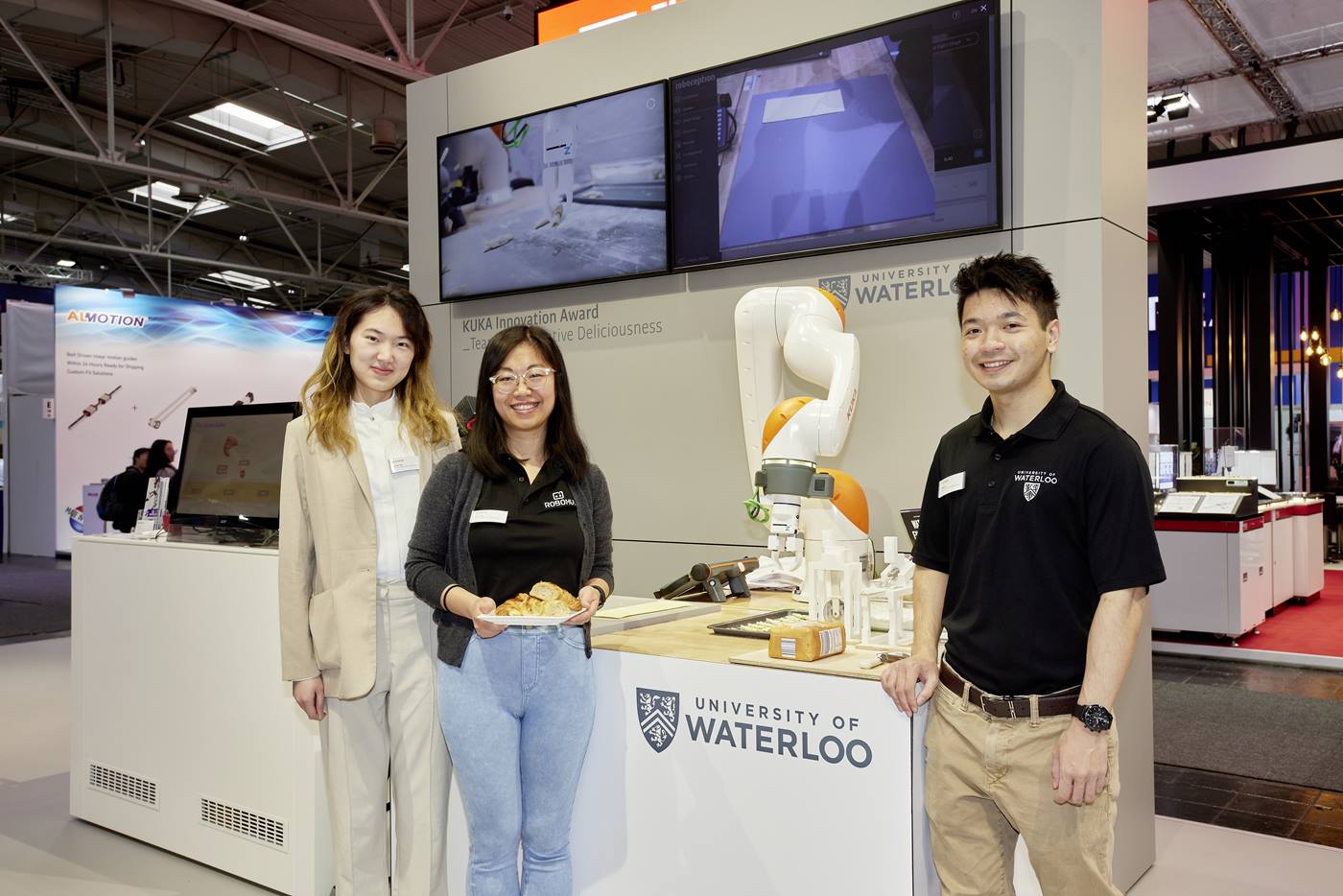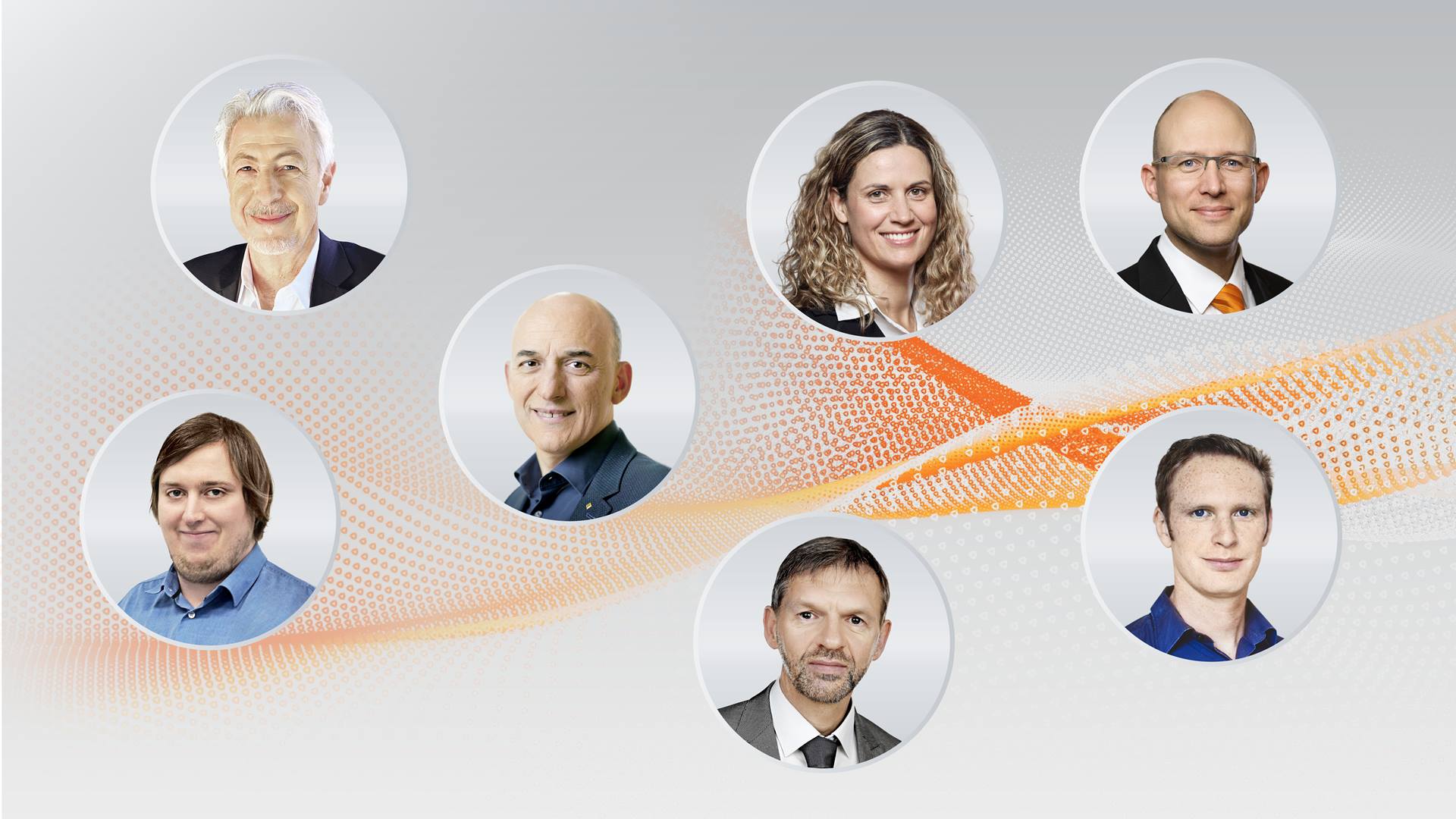LBR iisy in the craft sector
The goal of the KUKA Innovation Award 2024 was to bring collaborative automation for the people. For that reason the award was based on our recently introduced robot operating system and ecosystem iiQKA and our lightweight robot LBR iisy. This enables the robotics community to implement their own hardware and software extensions on a KUKA robot much easier than before, making a modern, powerful and scalable basis for technology innovation within robotics available. The overall aim was to develop innovative applications, enabling technology and software that help to transform and automate craft related use cases based on collaborative robotics.

